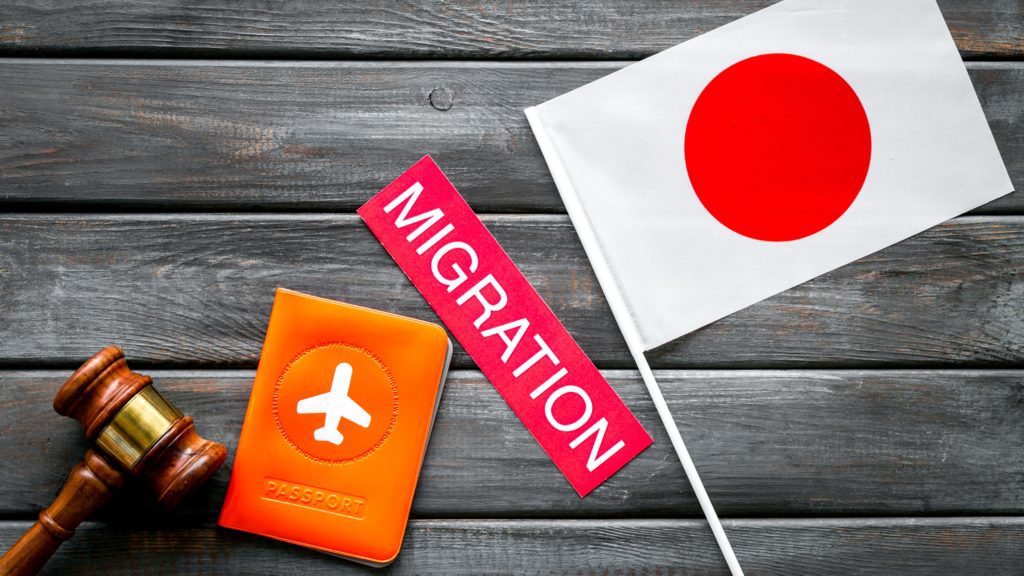With a vibrant culture, technologically modern reputation, a unique sense of history and delicious food, it is little surprise that Japan has become a booming travel destination for Britons in particular. Tourism aside however, around 70,000 Japanese citizens call the UK home, and many more families have connections that cross between the two countries.
International access and relocation cases involving Japan and the UK are not strangers to our family courts. As with any relocation case however, any move to another jurisdiction must be carefully considered and the courts will expect to see a highly detailed breakdown of the proposed move. With Japanese cases in particular, the utmost care must be taken given the complexities of local law and customs. As Japan is on the cusp of bringing in major reforms to its custody law, the following issues are particularly pressing when considering relocating from the UK to Japan.
Change in Child Custody Law
In relation to child custody law, change is afoot in Japan after the Japanese government approved a bill permitting parents to elect to have either sole or joint custody upon divorce. Having been the only G7 member which did not legally recognise joint custody, the new rules are set to take effect from 2026. Japan previously only recognised sole custody by one parent, leading to criticism as to the effect this had on some parent-child relationships, and meaning some parents were prevented from playing a more active role in their child’s upbringing. The arrangements also posed challenges for non-Japanese citizens who wished to maintain a relationship with their child if their divorced partner returned to Japan with the child.
The presence of the joint custody bill in Japan would allow the court to intervene in parental disputes on important matters, such as education and medical treatment. It would also allow a parent to make a sole decision if an emergency situation arises and the other parent cannot be reached in time.
Whilst the bill will be applied retrospectively to allow parents who divorced under the current system to move to joint custody. If there are suspicions of abuse, the bill has confirmed that custody will continue to be granted to one parent.
Visa Issues
More broadly, whilst British citizens do not need a visa to enter Japan, should a parent wish to relocate there permanently, visa and residency requirements must of course be met. The current visitor visa scheme allows British citizens to stay in Japan for a maximum of ninety days.
Cultural Differences
As with any international move, there will likely be some cultural difference that will need to be navigated. The Japanese language, for example, is considered to be one of the most complex languages for English speakers to learn. Without a certain level of Japanese, completing basic tasks in Japan could provide difficult, unless you have a company of Japanese-speaking friends or family members to assist. It could also become particularly challenging for younger children who are adjusting to life in a new country. Having a child attend one of a number of the UK based Japanese schools may well assist in the transition upon any move, but this is certainly something to address in any application.
Education System and school Terms
The Japanese school system consists of six years of primary school, three years of lower secondary school, and three years of upper secondary school. Children are required to attend school for at least the first nine years, and it is becoming more common for students to continue through to upper secondary school.
When comparing the school terms, whilst the summer and spring school holiday period in the UK coincides with the Japanese summer holidays, the winter holidays do not typically commence until 26 December. Christmas Day for example, is not a public holiday in Japan. Whilst the UK’s public holidays are over the Christmas and Easter period, Japan’s celebrations are across the New Year and Golden Week (a period from 29 April – 5 May which includes four days of public holidays). Given the Japanese extended holiday periods do not coincide with the typical UK school calendar, difficulties can arise when arranging for the child to spend time with their parents over holiday periods.
Time Zones and Travel
Furthermore, whilst arranging suitable dates for direct contact, this may pose its own challenges, another factor to consider prior to agreeing to relocation is the great difference in time zones. Japan is 9 hours ahead of the UK. This in itself can make arranging indirect contact, such as FaceTime calls when considering the child’s school day, their extra-curricular activities, and their sleep routine. It may be necessary to consider longer calls over weekends and shorter midweek calls to compensate for this, but again the court will need to keep a watchful eye on the impact of this regarding the relationship between the child and the left-behind parent.
Considering Japan’s geographical location, flights between Japan and the UK vary between 11.5 and 14 hours. Thought must be given to the associated jet lag, particularly with younger children and on occasions where children would be returning to school post visit.
Healthcare
As there is no reciprocal healthcare agreement with Japan, it is vital that individuals register for healthcare as a resident upon any move. If a family is relocating or considering extended visits in Japan, and a parent or child has any particular medical needs, research into medical facilities and medication is likely to be hugely valuable to a court here in determining any application.
Whilst relocating to a new jurisdiction may be filled with exciting opportunities, it can also be an incredibly challenging and emotional experience for the family as a whole. A court will inevitably scrutinise any application to relocate extremely carefully. It is therefore vital that any application to Japan incorporates a comprehensive workable plan, with due care being given as to how life would be for the families involved in any move, and which places the child’s best interests at the heart of the relocation.
James Netto
[email protected]
Beatrice Holt
[email protected]
The international Family Law Group LLP
www.iflg.uk.com
© July 2024
-
James Nettohttps://iflg.uk.com/team/james-netto
-
James Nettohttps://iflg.uk.com/team/james-netto
-
James Nettohttps://iflg.uk.com/team/james-netto
-
James Nettohttps://iflg.uk.com/team/james-netto
-
Beatrice Holthttps://iflg.uk.com/blog/author/beatrice-holt
-
Beatrice Holthttps://iflg.uk.com/blog/author/beatrice-holt












